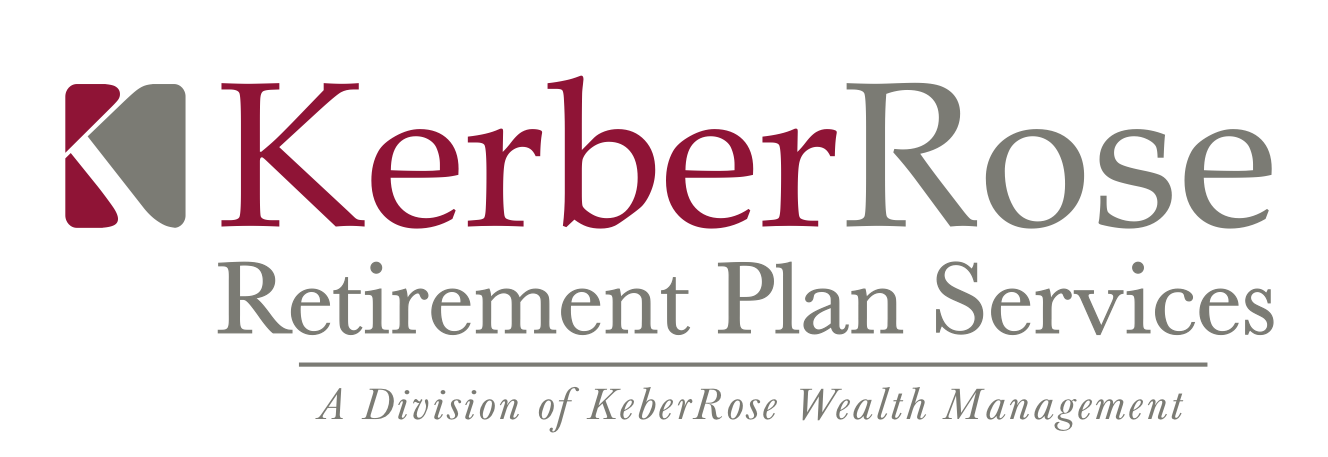The Latest News and Updates from KerberRose
Resources
Documenting Fiduciary Plan Management Responsibilities
ERISA states that every plan document must identify a “Named Fiduciary” to be the individual or entity serving as the primary fiduciary responsible for all plan management activities (e.g., President, Plan Administrator, The Company (BOD), or another individual or entity). A plan must have appropriate fiduciaries in place so that it can continue operations and participants have a way to interact with the plan.
Should You Adopt a Plan Committee Charter?
The primary purpose of a committee charter is to document overall plan governance. It is not dissimilar to how your Investment Policy Statement (IPS) acts as a “roadmap” for managing your plan investments.
Should Fiduciaries Outsource Retirement Plan Investment Responsibility?
Fiduciaries are personally responsible for participant losses resulting from a fiduciary breach. Plan sponsor fiduciaries who handle plan investments themselves, or use advisors who do not assume fiduciary status, face potential exposure for both investment performance and all plan fees.
Webinar Replay - Legal & Regulatory Update
Listen to a replay of our Legal & Regulatory Update for Plan Fiduciary webinar.
It’s That Time Again! Back-to-School for Fiduciaries
Can you hear the bells ringing? It’s that time of year to review your to-do list of fiduciary responsibilities. Ask yourself the following questions to make sure you are on top of your responsibilities and liabilities.
What Constitutes Proper Documentation of Retirement Plan Committee Meetings?
With most retirement plans, the fiduciary responsibility of selecting and monitoring the plan’s menu of investments is designated to a retirement plan investment committee. This committee usually includes financial officers and human resources officers of the employer. The committee meets periodically (anywhere from annually to quarterly) to consider agenda items including investment due diligence, fees and services of plan providers, status of plan goals, etc.
Looking to Reduce Your Fiduciary Liability? Benchmark Your Retirement Plan.
As a Plan Sponsor, you have a duty to perform ongoing monitoring of your company’s retirement plan. Since ERISA is complicated, navigating this landscape is oftentimes confusing and challenging. You might be wondering, “What do I need to do to avoid fiduciary liability for my 401(k) plan?”
Tips for Preventing Uncashed Retirement Checks
Managing uncashed retirement checks may be considered a nuisance by plan administrators. Nevertheless, the employer still has fiduciary responsibility when a former employee fails to cash their distribution.
Target Date Funds and Fiduciary Obligations
Target date funds (TDFs) — which rebalance investments to become more conservative as a fixed date approaches — are a convenient way for plan participants to diversify their portfolios and reduce volatility and risk as they approach retirement, making them an increasingly popular choice. However not all TDFs are created equal, and selecting and monitoring them can pose unique challenges for plan sponsors and fiduciary advisors.
Why CFOs Should Consider Partnering with a Retirement Plan Advisor
Many companies are outsourcing more and more activities, mainly because outsourcing can provide cost savings and increase productivity. Outsourcing allows companies to focus more on their core businesses, rather than spending time on areas outside their expertise. For retirement plan sponsors, outsourcing services makes sense for these reasons as well as others.
The Top Three Reasons to Outsource Fiduciary Services
Many companies are outsourcing more and more activities, mainly because outsourcing can provide cost savings and increase productivity. Outsourcing allows companies to focus more on their core businesses, rather than spending time on areas outside their expertise. For retirement plan sponsors, outsourcing services makes sense for these reasons as well as others.
3(38) or 3(21): Which Fiduciary Service is Right for You?
Looking to reduce your fiduciary risk as a plan sponsor? A little outside help can yield big reductions in risk, provide the best for the people on your company’s payroll, and help you feel good about your qualified retirement plan.













